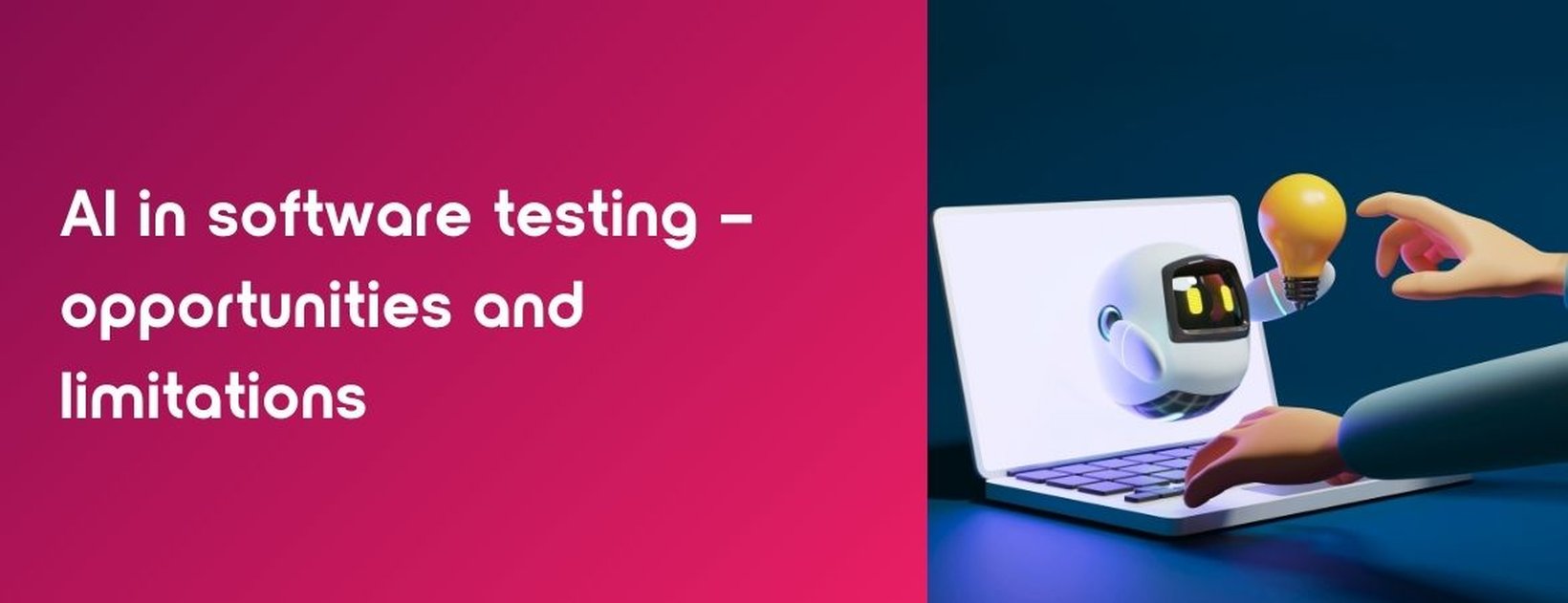How Artificial Intelligence is reshaping Quality Assurance – and why a realistic perspective is essential
What does “AI in Software Testing” mean? Definition and Context
The term AI in Software Testing refers to the use of technologies such as Machine Learning and Natural Language Processing (NLP) to make individual phases of the testing process more intelligent, efficient, and adaptive. The goal is not to replace human testers, but to provide targeted support for their work.
Important: AI does not replace classical test automation tools like Selenium or JUnit, but extends them. While traditional tools operate on fixed rules, AI learns from data and makes probabilistic decisions – a real gamechanger for dynamic test environments and Continuous Testing.
What opportunities does AI bring to the testing process?
AI systems automate repetitive QA tasks, enable more accurate defect predictions, and thereby increase efficiency, resource utilization, and test coverage. In addition, they support targeted and risk-based test strategies through intelligent test case generation and prioritization.
Efficiency gains and resource savings
AI systems can automate repetitive tasks such as test case assignment, defect classification, or test data provisioning. This frees up QA teams for exploratory testing and strategic test planning.
Improved defect prediction and test coverage
By recognizing patterns in historical test data, AI can predict defect probabilities. This allows for targeted prioritization and broader test coverage with less effort – especially in complex system landscapes.
Intelligent test case generation and prioritization
AI-enabled tools can analyze requirements or user stories (e.g., via NLP) and generate suitable test cases. These can be automatically prioritized – based on usage frequency, criticality, or past defect patterns.
Where are the limits and challenges?
Data dependency and training quality
Without high-quality, sufficiently large datasets, AI remains ineffective. Poor or biased training data leads to inaccurate predictions – potentially with severe consequences for software quality.
Black box challenge and lack of traceability
Many AI models make decisions without providing transparent reasoning. For safety-critical applications or highly regulated industries, this poses a serious risk.
Technical as well as ethical risks
AI misclassifications can cause test gaps or false alarms. Companies must also address ethical concerns such as bias, accountability, and data protection when deploying AI.
Practical use cases
Applications of Machine Learning and NLP in testing
Defect prediction: ML models analyze past builds and code changes to identify risk-prone modules.
Test data generation: AI automatically creates realistic and privacy-compliant test data.
Requirements analysis: NLP detects inconsistencies or gaps in user stories – before development even starts.
Industry examples
Agile teams use AI for continuous test optimization in every iteration.
MedTech companies apply AI-based testing to validate complex embedded systems.
Banks leverage AI to automate regression tests in core systems with frequent change cycles.
Evaluation and recommendations
When is AI adoption worthwhile?
AI adds particular value where traditional automation reaches its limits: handling large datasets, unclear test priorities, or dynamic requirements. It complements human expertise – but does not replace it.
What should QA teams consider?
Set realistic expectations: AI is no silver bullet.
Establish a strong data foundation: Clean, structured training data is essential.
Build know-how: Training in AI testing and test management is crucial – for example, with certification courses from trendig GmbH.
Conclusion for organizations in transition
AI is fundamentally transforming software testing. Companies that invest early – in technology, but above all in people – will see gains in quality, speed, and innovation. Trendig supports you with training, consulting, and real-world expertise.
faq: frequently asked questions about ai in software testing
What is AI in software testing?
The use of artificial intelligence to support or automate tasks in software testing, for example through machine learning or natural language processing.
Welche Vorteile bringt KI im Softwaretest?
Schnelleres Testing, höhere Testabdeckung, bessere Fehlerprognosen und intelligentes Testfallmanagement.
Wo liegen die Grenzen des KI-Einsatzes beim Testen?
Abhängigkeit von Datenqualität, Intransparenz der Entscheidungen (Blackbox), ethische und regulatorische Fragestellungen.
Which examples exist for AI in testing?
Defect prediction in CI/CD pipelines, NLP-based requirements analysis, automated test data generation.
Wie sinnvoll ist der KI-Einsatz für mittelständische Unternehmen?
Sehr sinnvoll – wenn realistische Ziele verfolgt, die richtigen Tools gewählt und Mitarbeitende qualifiziert werden.
